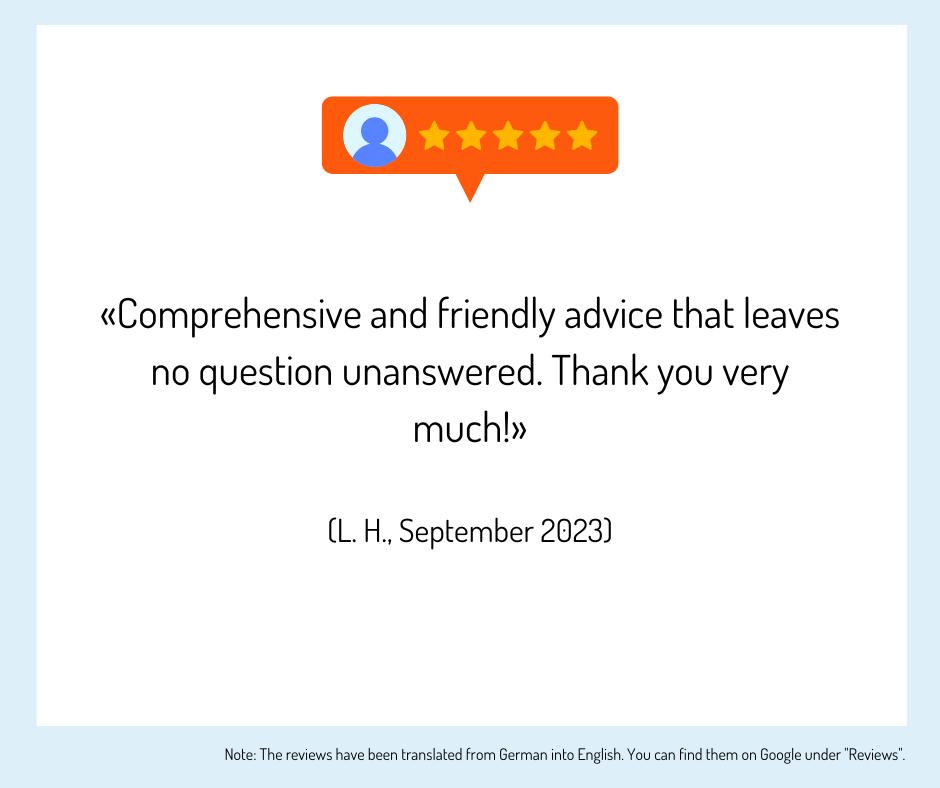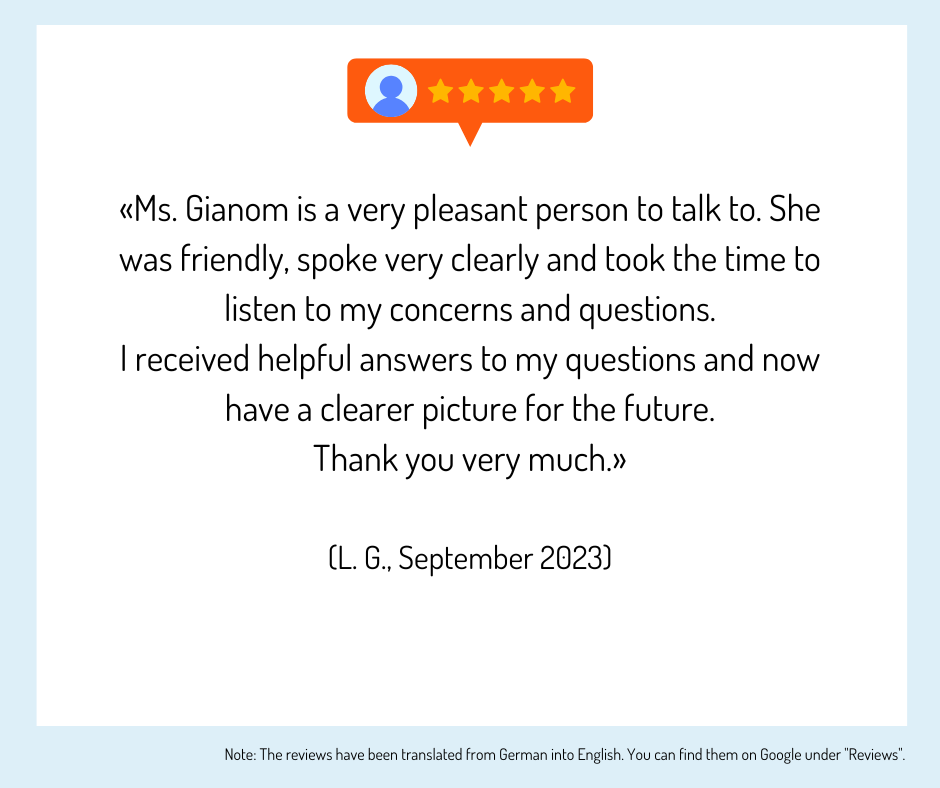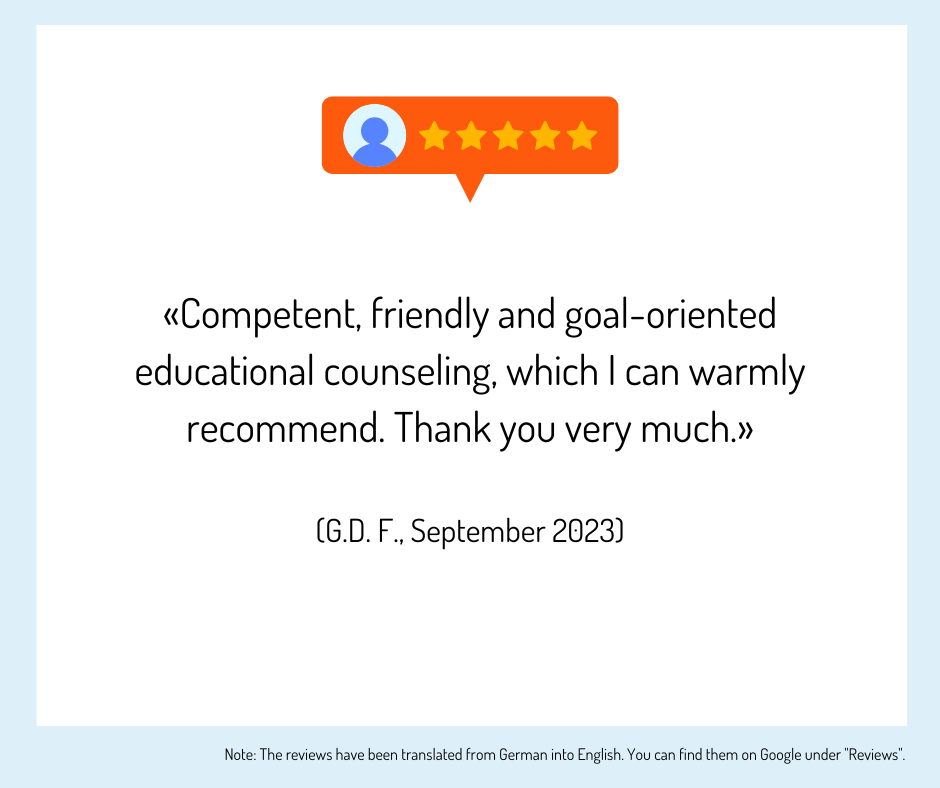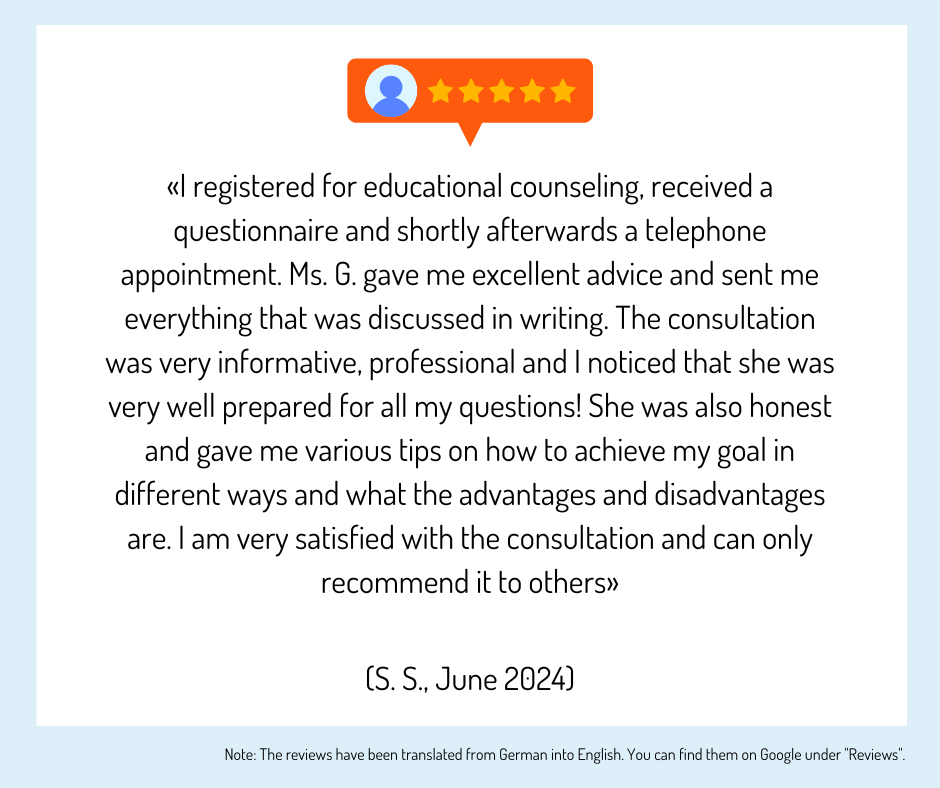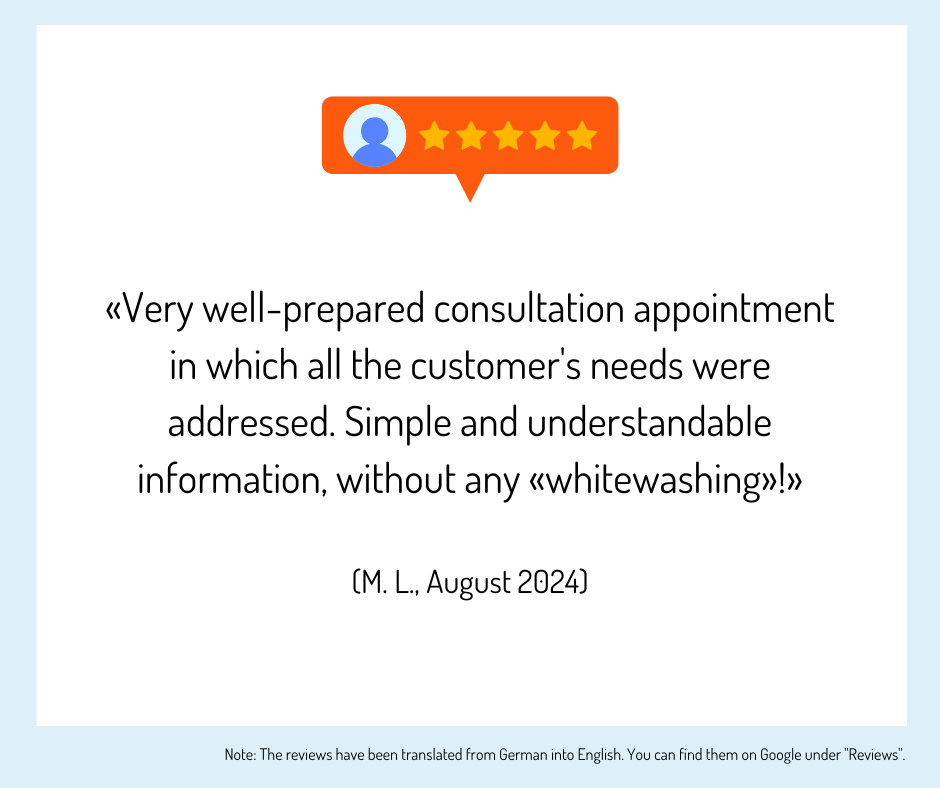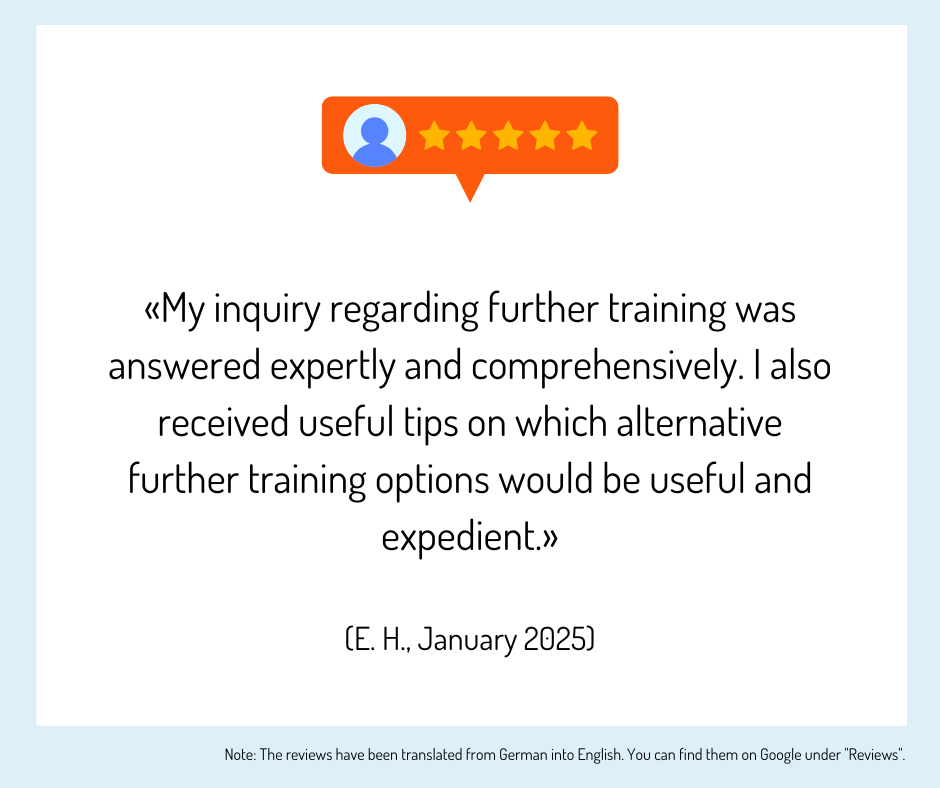Job reference - Public seminars / Seminars for individuals (Region Basel):
1 Provider
Sofort zur richtigen Weiterbildung
Education location / Schools Basel
Questions and answers
How can I contest a reference?
It can always happen that a reference does not meet the employee's expectations. For example, information on personal details or the job title may be incorrect, individual tasks, activities or qualifications may have been forgotten or the wording may be incorrect or unfavorable. The reference can then be contested.
In such a case, it is best to first approach the line manager directly and express the respective requests for improvement or personal concerns and objections. As long as the changes are not too drastic, they will usually be accepted and the reference will be corrected and adjusted.
The following procedure can usually be observed: After careful reading, the employee changes the reference, or individual sentences and passages, so that it meets their expectations. If there are any uncertainties, an appropriate specialist can also be consulted. The reference is then submitted to the employer again. The employer can now decide whether and to what extent they wish to comply with the employee's requests for changes. A compromise can also be reached between the concerns of both sides.
If the line manager/supervisor does not want to make any changes and the employee does not agree, the employee can submit a written objection. If this also has no effect, the employee has the right to challenge the reference in a further step and take legal action in court. However, this is always associated with considerable effort and costs, so such a procedure should be avoided if possible.
How can I write a reference?
An employment reference is an extremely important document that is scrutinized by potential future employers, recruiters, personnel managers and HR staff when looking for a job. It contains essential and important information about the specialist knowledge and skills of a person or employee, their tasks and activities, as well as their behavior, social skills and personality.
An employee can request a reference from their employer at any time during the employment relationship, and not just in the event of dismissal or a change of supervisor.
In principle, a reference must be true, linguistically correct, complete and well-written. The employer is free to decide which aspects to emphasize or not. After all, the next employer must have the opportunity to gain a comprehensive picture of the person and their suitability. This is why the structure and content of a reference is clearly defined and prescribed by law. For example, it must be written, in text form and issued on company stationery.
At least the following elements must be present:
- Title "Employment reference"
- Name and address of the employer/training company
- First name, surname and date of birth of the employee
- Place and date
- Duration of the employment relationship
- Type of employment relationship
- Job title, job function, job position
- Information about the company
- List of tasks and activities
- Possible promotions
- Performance assessment, professional skills
- Behavioral assessment
- Reason for termination of employment (employee's consent required)
- Final formula
- Handwritten signature of the employer
If you are unsure or lack time, you are welcome to consult an expert who specializes in the professional creation of individual employment references.
What should I look out for when writing a reference?
The content of an employment reference must be true, complete, linguistically correct and benevolent. It must not be a hindrance to an employee's future job search. There are clear rules to be observed here, which define, among other things, which aspects of the content are mandatory. It is also stipulated which (negative) content is not permitted in a reference. Depending on the information provided, the respective relationship is decisive. For example, highly personal points, such as illnesses or disabilities, may not be included in the reference, but only insofar as these do not have a decisive influence on an employee's employment and would therefore be in the legitimate interest of the future employer. Longer absences or periods of absence are also generally not mentioned, provided they do not account for more than half of the total period of employment.
The following points may not be included in the reference:
- Any private behavior that takes place outside the company: Personal problems, marital disputes, party membership, assets, sex life, religious affiliation, secondary employment, participation in strikes, voluntary work, commitments, etc.
- One-off misconduct, warnings
- Single late arrival
- One-off dispute with the employer
- One-off temporary drop in performance
- One-off disagreements with work colleagues
- Suspicion of criminal offenses or criminal acts that are not related to work
- Pregnancy and parental leave
On the other hand, the following points may be mentioned when writing an employer's reference, provided that they are mentioned in the correct language:
- Contentiousness
- Failure to follow instructions in repeated cases
- Careless working methods in repeated cases
- Inability to work in a team
- Repeated harassment of colleagues at work
- Repeated drunkenness at the workplace
- Offenses in the workplace
What does a course on writing a reference involve?
- Theoretical and legal basics of writing a reference for employers and employees
- Introduction to the different types of certificates
- Optimal design and correct, systematic structure
- Set up positive and negative content correctly
- Description of performance and behavior
- Appropriate and individual formulations and statements without illegal employment reference codes
- Correct understanding and interpretation of employment references
- Practical exercises
Erfahrungen, Bewertungen und Meinungen zur Ausbildung / Weiterbildung
Haven't found the right training or further education yet? Benefit from educational advice now!
Further training is not only important in order to maintain or increase professional attractiveness, investing in training or further training is still the most efficient way to increase the chances of a pay rise.
The Swiss education system offers a wide range of individual training and further education opportunities - depending on your personal level of education, professional experience and educational goals.
Choosing the right educational offer is not easy for many prospective students.
Which training and further education is the right one for my path?
Our education advisory team will guide you through the "education jungle", providing specific input and relevant background information to help you choose the right offer.
Your advantages:
You will receive
- Suggestions for suitable courses, seminars or training programs based on the information you provide in the questionnaire
- An overview of the different levels and types of education
- Information about the Swiss education system
We offer our educational counseling in the following languages on request: French, Italian, English
Register now and concretize your training plans.

Attraktive Services für Swisscom Mitarbeitende
Kostenlose Services
» Bildungsberatung (Wert: CHF 150.–)
Bildungs- und Businessratgeber (Wert: CHF 175.–)
» Rabatte
Attraktive Rabattierungen seitens der Bildungsanbieter.
» Massgeschneiderte Bildungsangebote
Ohne grossen Zeitaufwand den besten Trainer, Coach oder Schulungsanbieter finden
Bildungsangebot Schweiz
Aus über 700 Bildungsanbietern das richtige Bildungsangebot finden




